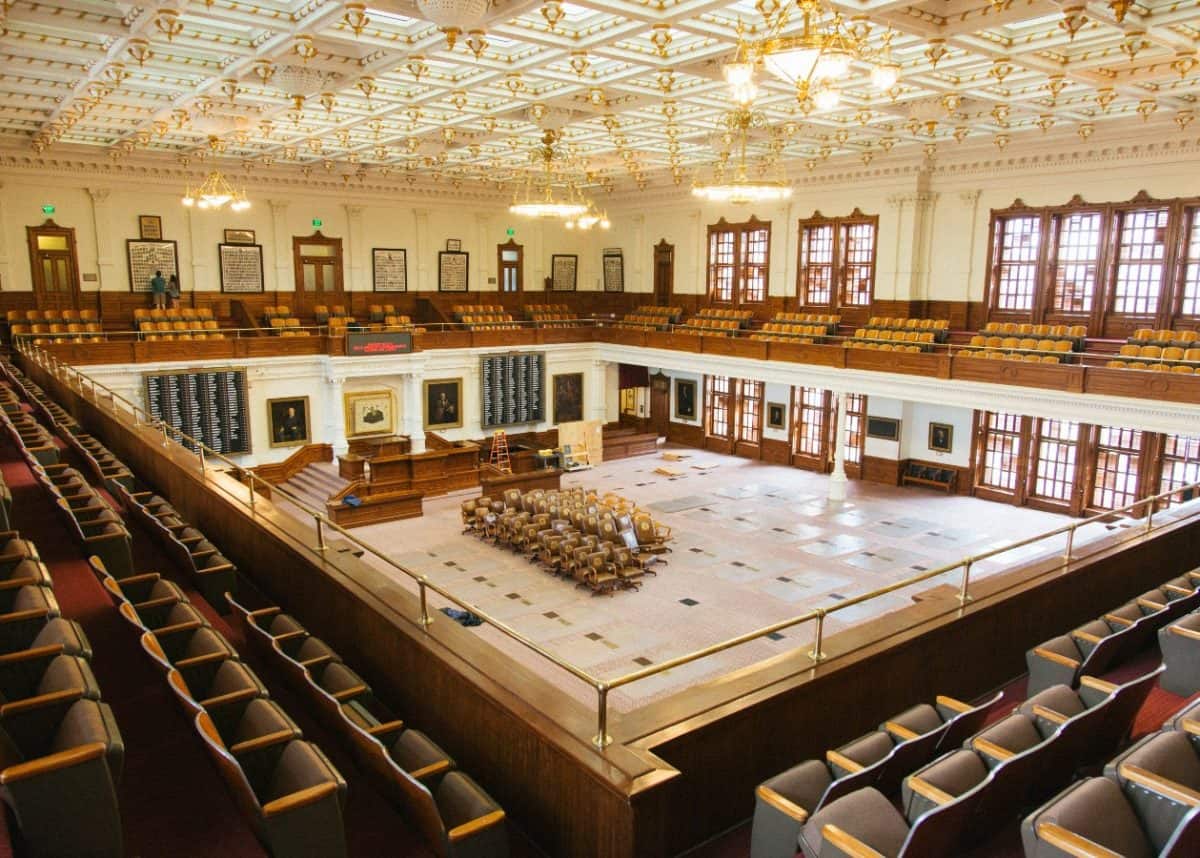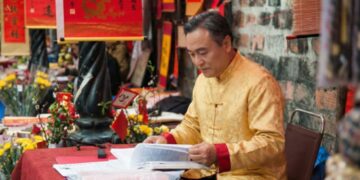Victor Menaldo, University of Washington; James D. Long, University of Washington, and Morgan Wack, University of Washington
Former presidents are being investigated, prosecuted and even jailed worldwide.
In Bolivia, ex-President Jeanine Áñez was arrested on terrorism, conspiracy and sedition charges on March 13. A week before, former French President Nicolas Sarkozy was sentenced to prison for corruption and influence peddling.
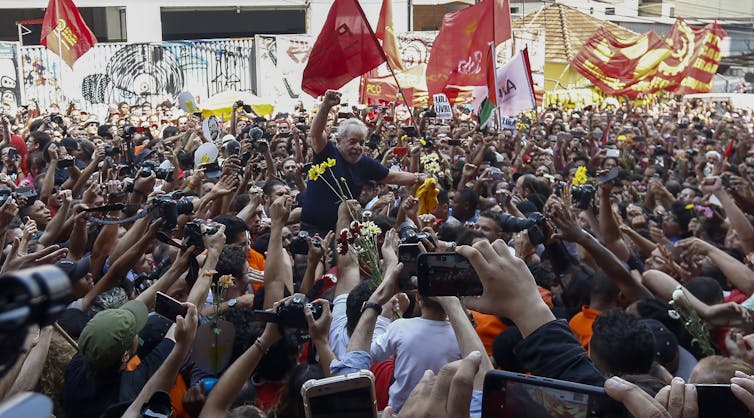
Israel’s sitting Prime Minister Benjamin Netanyahu is currently on trial. Jacob Zuma, the former president of South Africa, faces trial in May. And in the U.S., New York prosecutors are investigating former President Donald Trump’s business dealings.
At first glance, prosecuting current or past top officials accused of illegal conduct seems like an obvious decision for a democracy: Everyone should be held accountable and subject to the rule of law.
Destabilizing prosecutions
But presidents and prime ministers aren’t just anyone.
They are chosen by a nation’s citizens or their parties to lead. They are often popular, sometimes revered. So judicial proceedings against them are inevitably perceived as political and become divisive.
If the prosecution of past leaders is brought by a political rival, it can lead to a cycle of prosecutorial retaliation.
This is partly why U.S. President Gerald Ford pardoned Richard Nixon, his predecessor, in 1974. Despite clear evidence of criminal wrongdoing in the Watergate scandal, Ford feared the country “would needlessly be diverted from meeting (our) challenges if we as a people were to remain sharply divided over” punishing the ex-president.
Public reaction at the time was divided along party lines. But many people now see absolving Nixon as necessary to heal the U.S.
Our research on prosecuting world leaders finds that both sweeping immunity and overzealous prosecutions can undermine democracy. But such prosecutions pose different risks for mature democracies like France than they do in nascent democracies like Bolivia.
Mature democracies
Strong democracies are usually competent enough – and the judicial system independent enough – to go after politicians who misbehave, including top leaders. Sarkozy is France’s second modern president to be found guilty of corruption, after Jacques Chirac in 2011. The country didn’t fall apart after Chirac’s conviction.
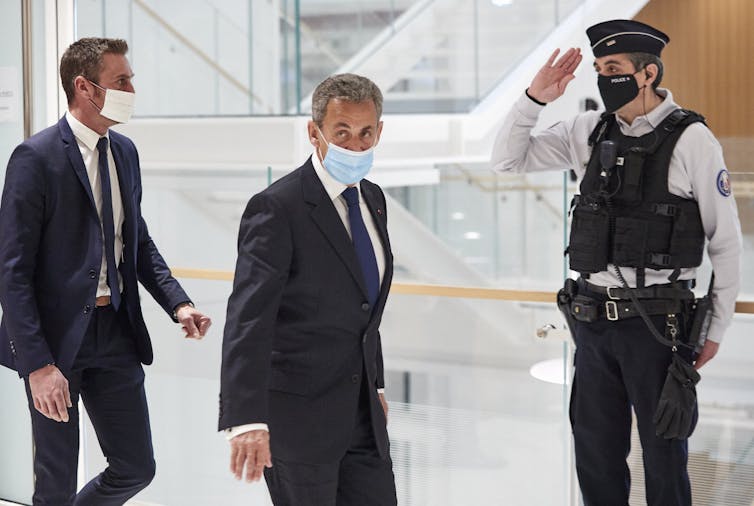
In mature democracies, prosecutions can hold leaders accountable and solidify the rule of law. South Korea investigated and convicted five former presidents starting in the 1990s, a wave of political prosecutions that culminated in the 2018 impeachment of President Park Geun-hye.
But even in mature democracies, prosecutors or judges can weaponize prosecutions.
Some observers say the three-year prison sentence handed down to France’s Sarkozy – whose corruption conviction involves kickbacks and an attempt to bribe a magistrate – was too harsh.
Overzealous prosecution versus rule of law
Overzealous political prosecution is more likely, and potentially more damaging, in emerging democracies where courts and other public institutions may be insufficiently independent from politics. The weaker and more beholden the judiciary, the easier it is for leaders to exploit the system, either to expand their own power or to take down an opponent.
Brazil embodies this dilemma.
Ex-President Luiz Inácio “Lula” da Silva, a former shoeshine boy turned popular leftist, was jailed in 2018 for accepting bribes in what many Brazilians felt was a politicized effort to end his career.
A year later, the same prosecutorial team accused the conservative former President Michel Temer of accepting millions in bribes. After his term ended in 2019, he was arrested; his trial was later suspended.
Both Brazilian presidents’ prosecutions are part of a years-long sweeping anti-corruption probe by the courts that has jailed dozens of politicians. Even the probe’s lead prosecutor is accused of corruption.
Brazil’s crisis either shows nobody is above the law – or tells the public that their government is incorrigibly corrupt. When that happens, it becomes easier for politicians and voters to view leaders’ transgressions as a normal cost of doing business.
For Lula, a conviction didn’t necessarily end his career. He was released from jail in 2019 and this March the Supreme Court annulled his conviction. New polling shows Lula retains 50% public support. He is now likely to run again for president in 2022.
Stability versus accountability
Mexico has a different approach to prosecuting past presidents: It doesn’t do it.
During the 20th century, Mexico’s ruling Institutional Revolutionary Party, or PRI, established a system of patronage and corruption that kept its members in power and other parties in the minority. While making a show of going after smaller fish for corruption and other indiscretions, the PRI-run legal system wouldn’t touch top party officials, even the most openly corrupt.
Impunity kept Mexico stable during its transition to democracy in the 1990s by placating PRI members’ fears of prosecution after leaving office. But government corruption flourished, and with it, organized crime.
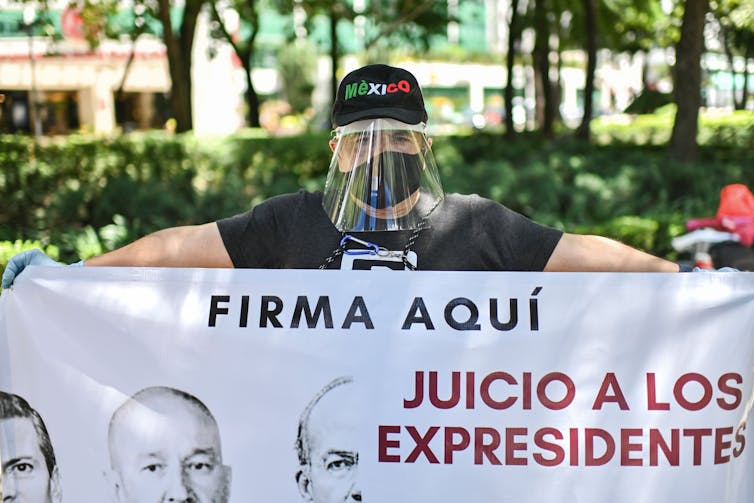
Mexico is far from the only country to overlook the bad deeds of past leaders, including those who oversaw human rights violations. Our research finds that just 23% of countries that transitioned to democracy between 1885 and 2004 charged former leaders with crimes after democratization.
Protecting authoritarians may seem contrary to democratic values, but many transitional governments have decided it is necessary for democracy to take root.
That’s the bargain South Africa struck as apartheid ended after decades of segregation and human rights abuses. South Africa’s white-dominated government negotiated with Nelson Mandela’s Black-led African National Congress to ensure they would avoid prosecution and keep their wealth.
This strategy helped the country transition to majority Black rule in 1994 and avoid a civil war. But it hurt efforts to create a more equal South Africa: It still has one of the world’s highest racial wealth gaps.
Corruption is a problem, too, as former President Zuma’s prosecution for lavish personal use of public funds shows. But South Africa has a famously independent judiciary, and Zuma’s prosecution is supported by the current president. It may yet deter future misdeeds.
Israel didn’t wait for Prime Minister Netanyahu to leave office to investigate wrongdoing. He was indicted in 2019 for breaches of trust, bribery and fraud; his trial is underway.
But it is fraught with delays, in part because as prime minister, Netanyahu can utilize the power of the state to resist what he calls a “witch hunt.” The trial triggered protests by his Likud party and an unsuccessful bid to secure immunity, among other stall tactics. Netanyahu was even reelected while under indictment.
Israel is partly a testament to the rule of law – and partly a cautionary tale about prosecuting leaders in democracies.
Victor Menaldo, Professor of Political Science, Co-founder of the Political Economy Forum, University of Washington; James D. Long, Associate Professor of Political Science, Co-founder of the Political Economy Forum, Host of “Neither Free Nor Fair?” podcast, University of Washington, and Morgan Wack, Doctoral Student in Political Science, University of Washington
This article is republished from The Conversation under a Creative Commons license. Read the original article.


